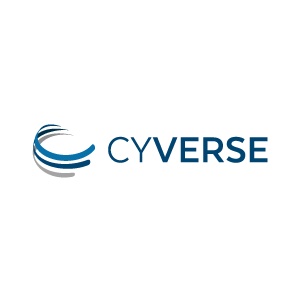 Researchers are using CyVerse’s cloud computing platform Atmosphere as a platform to manage multi-cloud deployments.
Researchers are using CyVerse’s cloud computing platform Atmosphere as a platform to manage multi-cloud deployments.
The first problem that Atmosphere set out to solve was simplifying the complexities in cloud computing,” said CyVerse senior software engineer and Atmosphere’s lead developer Steve Gregory. “For our user base, that meant creating a simple interface that allowed users to see only the most appropriate resources.” Troposphere, a micro-service within Atmosphere, hosts the user interface and allows users to intuitively manage, organize, and view progress for their cloud projects.
Now with over 6000 users, Atmosphere has been extended to become a multi-cloud interface. “In 2016, we allowed Atmosphere to become a platform that can be self-hosted by other sites like the Massachusetts Open Cloud,” said Gregory. “Other organizations can now host their own copies of Atmosphere and Troposphere and manage their own clouds.”
Recently, the Massachusetts Open Cloud (MOC) adopted Atmosphere as a means of making it easier for academics to access cloud resources. MOC is a public computational cloud based upon the Open Cloud Exchange model in which many stakeholders participate in the cloud’s development and operation. The project caters to a varied community of users, including academic entities and industrial partners, and those who require computational resources as well as groups providing such resources.
MOC uses Horizon, which provides a web-based user interface to OpenStack services. OpenStack provides open source software to develop and run private and public clouds platforms, and has become an epicenter for cloud developers and users to collaboratively design and improve upon computational products.
While many MOC users have a computational science background, the process of using cloud technology remains a challenge for most domain scientists. The MOC team found that Horizon provides such a large number of options that their users often found it overwhelming.
In 2016, the MOC team set out to develop Giji, an easy-to-use graphical user interface that would automate common operations and reduce complexity for their users. At the same time, they needed Giji to allow users easy access to Horizon to leverage other OpenStack capabilities.
As a starting point for Giji, we chose to leverage CyVerse’s Atmosphere and Troposphere products,” said Robert Baron, a software engineer at MOC. He said CyVerse was an easy choice because: “it provides a similar user experience that we wish to provide to our users. It is open source. It has a similar user base, and some maturity.”
In this video from the OpenStack Summit in Boston, Robert Barron (MOC), Steve Gregory (CyVerse), and Hang Xu (MOC) describe how Atmosphere is bringing the cloud to Academics.
Working together, CyVerse and MOC developers were able to install Atmosphere and Troposphere on the MOC, providing an intuitive user interface, authentication authorization, and interoperability between Giji and Horizon. “We started collaborating in the fall of 2016, trying to figure out how to become more flexible to meet the needs of the average OpenStack operator,” Gregory said. “It’s been a hard road with a lot of back and forth, but the end result has been successful deployment of Atmosphere on MOC.” Work from the CyVerse-MOC collaboration was presented at this year’s OpenStack summit in Boston on May 8.
Collaborating with MOC and JetStream projects has allowed us to learn from their expertise to improve and extend Atmosphere,” noted Nirav Merchant, a CyVerse co-principal investigator at the University of Arizona. “Multiple engineers collaborating on the same code base not only improves the quality and features, it provides sustainable growth by virtue of multiple organizations working together on shared goals – which aligns perfectly with our core mission at CyVerse.”
The MOC team plans for Giji to be the gateway user interface to all MOC services. Meanwhile, CyVerse and MOC plan to continue the collaboration to develop an enhanced plugin architecture for Atmosphere and Troposphere, furthering the platform’s flexibility, among other projects.
MOC is comprised of academic, government, nonprofit, and industry partners, including Boston University, Harvard University, Northeastern University, Massachusetts Institute of Technology, the University of Massachusetts, the Massachusetts Technology Collaborative, United States Air Force, Massachusetts Green High Performance Computing Center, Brocade, Cisco, Intel, Lenovo, Red Hat, and Two Sigma, among others.
Sign up for our insideHPC Newsletter



